Top Trending World News & Highlights
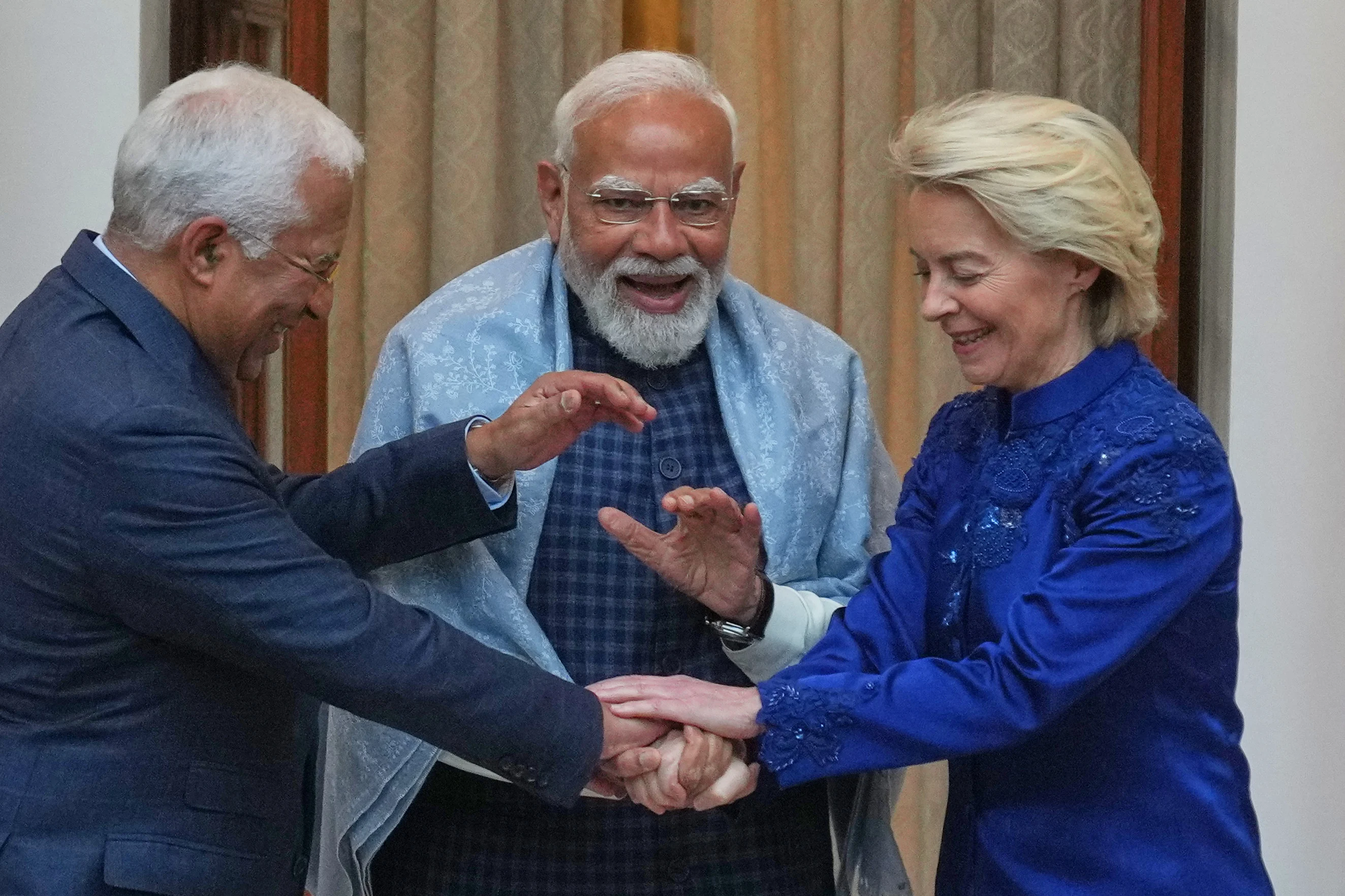

One accord, three setbacks India's use of the EU trade pact to boil Turkey, Pakistan, and Bangladesh
The United States has also been affected by India's trade agreement with the European Union. The historic trade deal between India and the EU would not only affect Bangladesh and Pakistan but also the United States and Turkey. The agreement calls for the elimination or reduction of tariffs on more than 90% of EU goods exports to India, including hefty charges of up to 44% on machinery, 22% on chemicals, and 11% on pharmaceuticals, which will be phased down over time.Following nearly two decades of negotiations, officials announced on Tuesday that India and the European Union have achieved a free trade agreement to strengthen economic and strategic ties. Up to 2 billion people might be impacted by the agreement, which the president of the EU's executive body referred to as the "mother of all deals." The accord won't go into force for some months. The agreement between two of the largest markets in the world comes as Washington imposes high import taxes on both the EU bloc and the Asian behemoth, upsetting long-standing trade patterns and forcing major economies to look for new alliances. The FTA, which both India and the 27-nation EU refer to as "the mother of all deals," provides a "decisive boost" to the labor-intensive textile industry by improving price competitiveness and expanding market access in one of the most sophisticated consumer markets in the world, according to a note released today by the Indian Textile Ministry.
Published 29 Jan 2026 12:51 PM


Trump's H-1B Fee Order Leads to Emirates Flight Delay as Indian Passengers Deboard
A recent policy decision from former U.S. President Donald Trump regarding increased H-1B visa fees has sparked unexpected travel disruptions. On Sunday, several Indian passengers on an Emirates flight bound for the United States chose to deboard the plane after learning mid-journey about the implications of the updated visa rule. The incident, which occurred during a scheduled stopover in Dubai, caused a delay of over three hours. The passengers, believed to be traveling on or applying for H-1B visas, reportedly became concerned about their legal or financial status upon arrival in the U.S. The fee hike — part of a broader effort to reduce visa program dependency on foreign labor — appears to have caused confusion and fear among travelers already navigating the uncertainties of immigration. Airport authorities in Dubai confirmed that the passengers voluntarily exited the aircraft before its onward journey. Emirates staff worked to reprocess baggage and seating, further prolonging the delay. No security threat was involved, and the flight eventually resumed with the remaining passengers. While U.S. immigration policy continues to shift, incidents like this highlight the real-world impact of political decisions on individuals and families. Many travelers affected by the policy are professionals who had made long-term plans based on the previous rules. Their decision to turn back speaks to the anxiety and unpredictability they face amid changing immigration landscapes.
Published 22 Sep 2025 05:43 PM


As Block Everything protests intensify, France is in chaos; will Macron step down?
France Protests: Under the banner of the "Block Everything" campaign, demonstrators staged large-scale protests around France on Wednesday, blocking highways, starting fires, and engaging in combat with law enforcement. In images reminiscent of the chaos of the 2018 "Yellow Vest" rallies, protesters set garbage cans on fire, obstructed train movement, and took over roundabouts.With no centralized leadership and ad hoc organization through social media, the demonstration is a wide-ranging manifestation of dissatisfaction. Only two days after the fall of Prime Minister Francois Bayrou's administration, it erupted in the European nation. Following the overthrow of the government on Monday and the prompt appointment of his longtime supporter, Sebastien Lecornu, as the new prime minister, French President Emmanuel Macron reportedly orchestrated the protests through Telegram channels.As thousands of people flooded onto the streets during the initial hours of unrest, the Associated Press reported that almost 300 individuals were arrested. Police used tear gas to disperse demonstrators who set barricades on fire in Paris. A bus was set on fire in Rennes, according to Interior Minister Bruno Retailleau, while train service in the southwest was suspended due to damage to a power line. Protesters, he said, were attempting to foster "a climate of insurrection."In an effort to stop the disturbance, the government of President Emmanuel Macron had sent out 80,000 police personnel nationwide. In spite of this, demonstrators set up barriers, started fires, and held protests in several locations. In Paris, trash cans were set on fire, and commuters reported traffic jams on major roads.The demonstrations expanded to many cities throughout France. In Nantes, police used tear gas on groups attempting to take over traffic circles, and protesters stopped a highway with burning tires. In Montpellier, barricades were erected at roundabouts and then taken down during altercations with police. Train services were briefly interrupted by fires in Toulouse, and attempts were made to establish additional blockades in Bordeaux. Even while the "Block Everything" movement failed to completely paralyze the nation, it did create significant flashpoints that interfered with daily life, transportation, and commutes to and from work.Meanwhile, the newly appointed Prime Minister, Sebastien Lecornu promised a “profound break" with the past on Wednesday as he faced the thorny task of trying to build a government with enough parliamentary support to pull the country out of a political crisis. Lecornu, 39, promised to find “more creative" ways than before to work with opposition parties to try to build a stable government, news agency AFP reported. “We will get there," he said during a handover ceremony. Lecornu is the seventh prime minister since Macron took office in 2017 — and the third within the space of a year.
Published 11 Sep 2025 04:24 PM
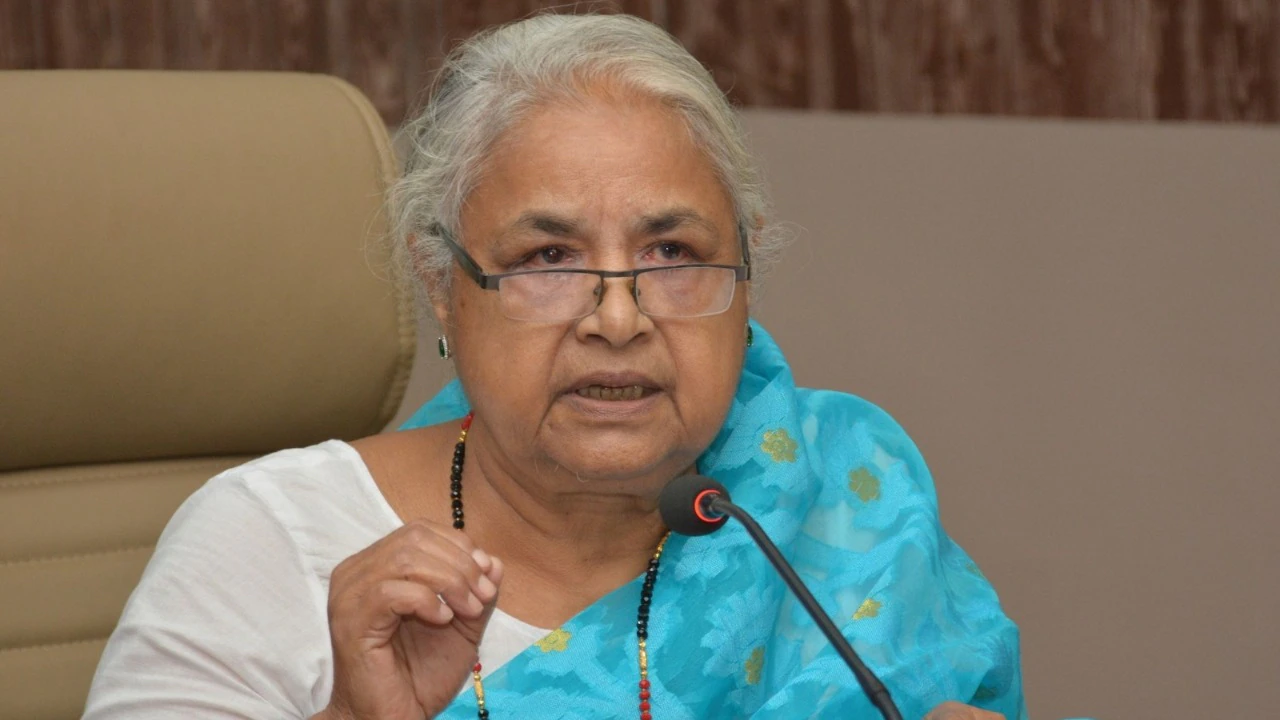

Gen-Z Favors Sushila Karki as Nepal’s Future Leader; PM Modi Recalls Ties: ‘I Remember the Ganga’
Former Chief Justice Sushila Karki has unexpectedly emerged as a favored figure among Nepal’s Gen-Z, who see her as a symbol of integrity and bold leadership in a time of political uncertainty. Despite not being affiliated with any political party, Karki’s clean track record and fearless judicial legacy have struck a chord with the younger generation, increasingly disillusioned with traditional political figures. The rising support for Karki underscores a generational desire for transparent and accountable governance. Young Nepalis, many first-time voters, are turning to leaders with proven credibility rather than political clout. Though Karki has not publicly expressed interest in entering politics, her name trending in youth forums and online polls points to a shifting political mood—one rooted in principle over populism. In a separate but timely moment, Indian Prime Minister Narendra Modi, during a recent address on India-Nepal relations, reflected on the shared cultural and spiritual history between the two nations. “I remember the Ganga,” he remarked, evoking a sense of nostalgia and emphasizing the centuries-old ties that bind the neighboring countries. His comments come amid growing calls for deeper regional collaboration and youth-led diplomacy. As Nepal’s political landscape evolves, the spotlight on Sushila Karki reflects a broader yearning for ethical leadership. With Gen-Z demanding change, the future of Nepalese politics may well be shaped by values that transcend party lines—and led by individuals once considered outside the political sphere.
Published 11 Sep 2025 03:53 PM


World
We will here show case the latest trends in the Globe from different industries and different verticals.


One accord, three setbacks India's use of the EU trade pact to boil Turkey, Pakistan, and Bangladesh
The United States has also been affected by India's trade agreement with the European Union. The historic trade deal between India and the EU would not only affect Bangladesh and Pakistan but also the United States and Turkey. The agreement calls for the elimination or reduction of tariffs on more than 90% of EU goods exports to India, including hefty charges of up to 44% on machinery, 22% on chemicals, and 11% on pharmaceuticals, which will be phased down over time.Following nearly two decades of negotiations, officials announced on Tuesday that India and the European Union have achieved a free trade agreement to strengthen economic and strategic ties. Up to 2 billion people might be impacted by the agreement, which the president of the EU's executive body referred to as the "mother of all deals." The accord won't go into force for some months. The agreement between two of the largest markets in the world comes as Washington imposes high import taxes on both the EU bloc and the Asian behemoth, upsetting long-standing trade patterns and forcing major economies to look for new alliances. The FTA, which both India and the 27-nation EU refer to as "the mother of all deals," provides a "decisive boost" to the labor-intensive textile industry by improving price competitiveness and expanding market access in one of the most sophisticated consumer markets in the world, according to a note released today by the Indian Textile Ministry.


Trump's H-1B Fee Order Leads to Emirates Flight Delay as Indian Passengers Deboard
A recent policy decision from former U.S. President Donald Trump regarding increased H-1B visa fees has sparked unexpected travel disruptions. On Sunday, several Indian passengers on an Emirates flight bound for the United States chose to deboard the plane after learning mid-journey about the implications of the updated visa rule. The incident, which occurred during a scheduled stopover in Dubai, caused a delay of over three hours. The passengers, believed to be traveling on or applying for H-1B visas, reportedly became concerned about their legal or financial status upon arrival in the U.S. The fee hike — part of a broader effort to reduce visa program dependency on foreign labor — appears to have caused confusion and fear among travelers already navigating the uncertainties of immigration. Airport authorities in Dubai confirmed that the passengers voluntarily exited the aircraft before its onward journey. Emirates staff worked to reprocess baggage and seating, further prolonging the delay. No security threat was involved, and the flight eventually resumed with the remaining passengers. While U.S. immigration policy continues to shift, incidents like this highlight the real-world impact of political decisions on individuals and families. Many travelers affected by the policy are professionals who had made long-term plans based on the previous rules. Their decision to turn back speaks to the anxiety and unpredictability they face amid changing immigration landscapes.


As Block Everything protests intensify, France is in chaos; will Macron step down?
France Protests: Under the banner of the "Block Everything" campaign, demonstrators staged large-scale protests around France on Wednesday, blocking highways, starting fires, and engaging in combat with law enforcement. In images reminiscent of the chaos of the 2018 "Yellow Vest" rallies, protesters set garbage cans on fire, obstructed train movement, and took over roundabouts.With no centralized leadership and ad hoc organization through social media, the demonstration is a wide-ranging manifestation of dissatisfaction. Only two days after the fall of Prime Minister Francois Bayrou's administration, it erupted in the European nation. Following the overthrow of the government on Monday and the prompt appointment of his longtime supporter, Sebastien Lecornu, as the new prime minister, French President Emmanuel Macron reportedly orchestrated the protests through Telegram channels.As thousands of people flooded onto the streets during the initial hours of unrest, the Associated Press reported that almost 300 individuals were arrested. Police used tear gas to disperse demonstrators who set barricades on fire in Paris. A bus was set on fire in Rennes, according to Interior Minister Bruno Retailleau, while train service in the southwest was suspended due to damage to a power line. Protesters, he said, were attempting to foster "a climate of insurrection."In an effort to stop the disturbance, the government of President Emmanuel Macron had sent out 80,000 police personnel nationwide. In spite of this, demonstrators set up barriers, started fires, and held protests in several locations. In Paris, trash cans were set on fire, and commuters reported traffic jams on major roads.The demonstrations expanded to many cities throughout France. In Nantes, police used tear gas on groups attempting to take over traffic circles, and protesters stopped a highway with burning tires. In Montpellier, barricades were erected at roundabouts and then taken down during altercations with police. Train services were briefly interrupted by fires in Toulouse, and attempts were made to establish additional blockades in Bordeaux. Even while the "Block Everything" movement failed to completely paralyze the nation, it did create significant flashpoints that interfered with daily life, transportation, and commutes to and from work.Meanwhile, the newly appointed Prime Minister, Sebastien Lecornu promised a “profound break" with the past on Wednesday as he faced the thorny task of trying to build a government with enough parliamentary support to pull the country out of a political crisis. Lecornu, 39, promised to find “more creative" ways than before to work with opposition parties to try to build a stable government, news agency AFP reported. “We will get there," he said during a handover ceremony. Lecornu is the seventh prime minister since Macron took office in 2017 — and the third within the space of a year.


Gen-Z Favors Sushila Karki as Nepal’s Future Leader; PM Modi Recalls Ties: ‘I Remember the Ganga’
Former Chief Justice Sushila Karki has unexpectedly emerged as a favored figure among Nepal’s Gen-Z, who see her as a symbol of integrity and bold leadership in a time of political uncertainty. Despite not being affiliated with any political party, Karki’s clean track record and fearless judicial legacy have struck a chord with the younger generation, increasingly disillusioned with traditional political figures. The rising support for Karki underscores a generational desire for transparent and accountable governance. Young Nepalis, many first-time voters, are turning to leaders with proven credibility rather than political clout. Though Karki has not publicly expressed interest in entering politics, her name trending in youth forums and online polls points to a shifting political mood—one rooted in principle over populism. In a separate but timely moment, Indian Prime Minister Narendra Modi, during a recent address on India-Nepal relations, reflected on the shared cultural and spiritual history between the two nations. “I remember the Ganga,” he remarked, evoking a sense of nostalgia and emphasizing the centuries-old ties that bind the neighboring countries. His comments come amid growing calls for deeper regional collaboration and youth-led diplomacy. As Nepal’s political landscape evolves, the spotlight on Sushila Karki reflects a broader yearning for ethical leadership. With Gen-Z demanding change, the future of Nepalese politics may well be shaped by values that transcend party lines—and led by individuals once considered outside the political sphere.
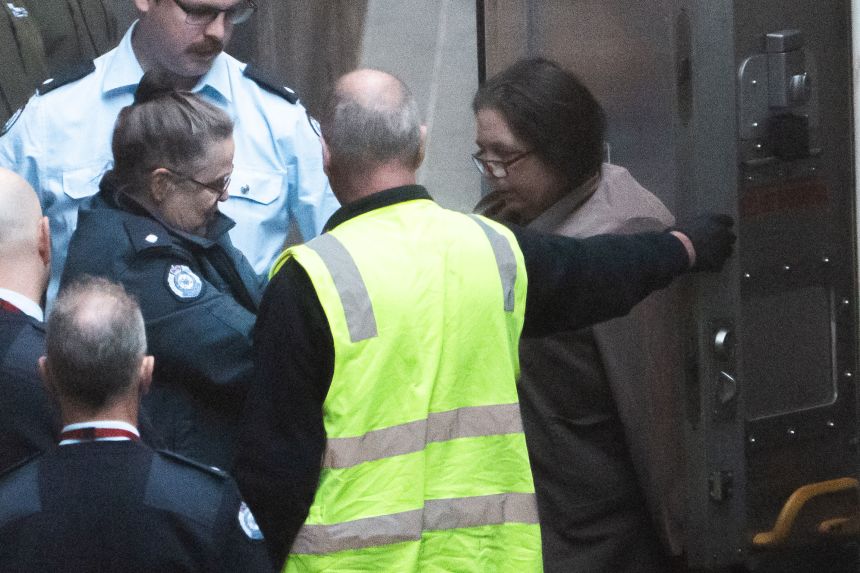

Due to a poisonous mushroom meal, an Australian triple murderer was sentenced to life in prison.
Erin Patterson was found guilty of killing three people and attempting to kill a fourth by poisoning them with dead mushrooms. She was sentenced to life in prison and a conditional 33-year period of non-liberty.The judgment was delivered by Judge Christopher Beale during a direct dissemination from the Supreme Court of Victoria on Monday morning.Following an 11-week trial in July, a court ruled that Patterson, 50, was culpable by the will of Don and Gail Patterson, the parents of his ex-husband Simon Patterson, as well as Simon's sister Heather Wilkinson.. Additionally, the jury found Patterson guilty of attempting to kill Heather's husband, Ian Wilkinson.In July 2023, Patterson received an invitation to a dinner where their servant served wellingtons of beef with enduits of mushrooms. Pasteur Wilkinson expressed his forgiveness to Patterson for attempting to harm the victim by making a statement about the impact on her during a pre-sentencing hearing last month.Both the defense and the prosecution agreed that Patterson should be given a life sentence for her "horrendous" acts, according to Beale. The defense argued that Patterson should be given an opportunity to be released, while the prosecution had demanded that she have no possibility of parole. Colin Mandy SC, Patterson's defense attorney, claimed that Beale should take into account that Patterson's fame put her in difficult circumstances, including spending 22 hours imprisoned in her cell. He claimed that because of her isolation, his client had a far higher "burden of imprisonment" than other inmates. Prosecutor Jane Warren concurred that Beale might take these requirements into account.
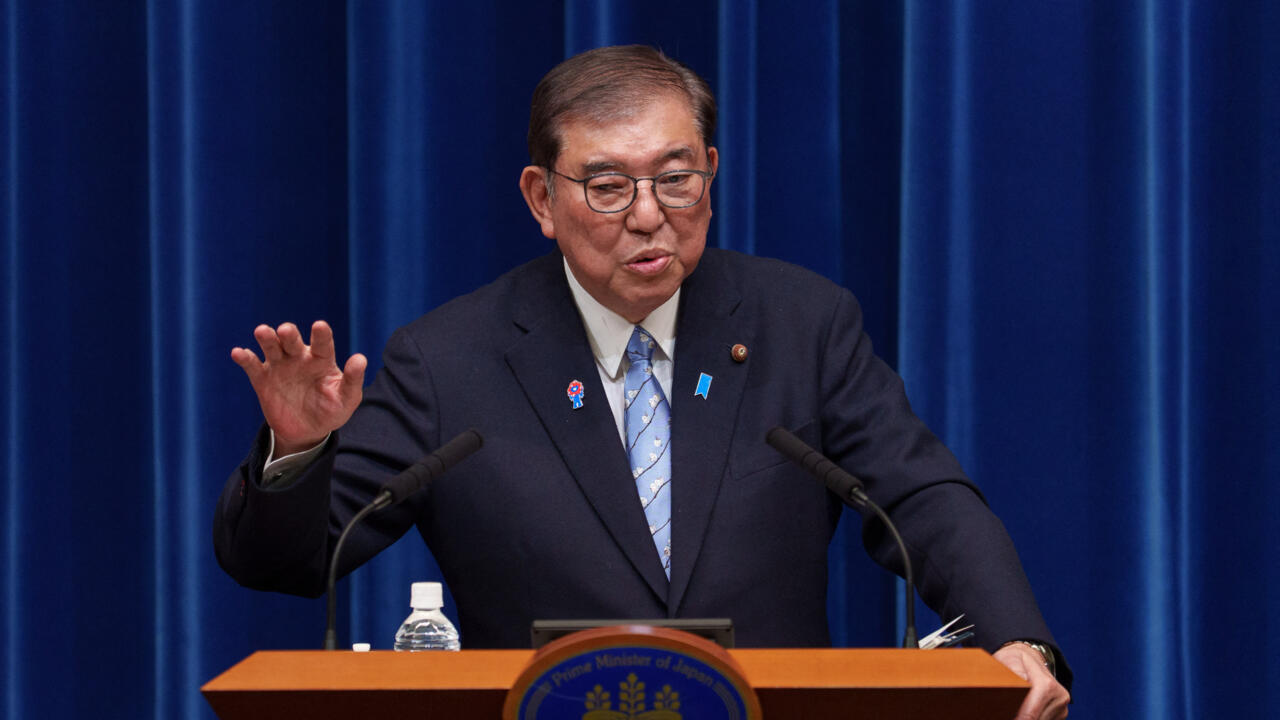

Le Premier ministre japonais Shigeru Ishiba se retire de ses fonctions principales et démissionne en tant que président du PLD.
According to a Reuters report, Japanese Premier Shigeru Ishiba told reporters at a media appearance that he had "taken the decision to resign as president of the PLD." A source close to the prime minister told Reuters on Sunday that he had previously told the media that he intended to step down as prime minister in order to prevent divisions within his liberal-democratic party (PLD). This decision ushers in a new era of political uncertainty for the fourth-largest economy in the world.Ishiba, who took office in September of the previous year, has seen a number of electoral setbacks, including the LDP's defeat in the July chamber of high elections. Analysts claim that one of the main causes of the reversals has been the voters' dissatisfaction with the rising cost of living.The focus now is on Ishiba's potential successor in the event that he too steps down as prime minister. Sanae Takaichi, a fiscal conservative who lost to Ishiba in the party leadership race last year, is regarded as a serious candidate. She has advocated for more expansionary fiscal policies and criticized the Bank of Japan's rate increases.
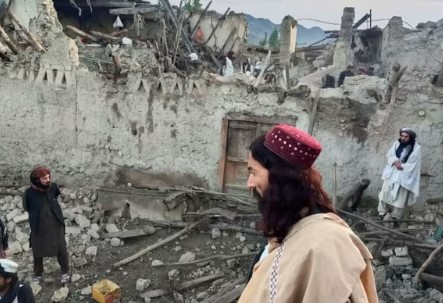

Afghan Villages Shattered by 6.0 Quake — Rescue Teams Race Against Time
A powerful earthquake struck eastern Afghanistan early Monday, shaking large parts of the country and leaving residents in fear as buildings swayed and the ground trembled beneath them. The quake, measured at 6.0 magnitude by the US Geological Survey, had its epicenter about 42 kilometers northeast of Jalalabad in the Hindu Kush region. The earthquake occurred at a shallow depth of 10 kilometers, which often results in more intense surface-level shaking. People in cities across eastern Afghanistan reported feeling strong tremors, with some running into the streets for safety. Initial reports suggest minor damage to homes in rural areas, though the full extent of the impact is still being assessed. Afghanistan is prone to earthquakes, especially in the Hindu Kush mountain range where tectonic plates frequently shift. Many communities in this region live in poorly constructed homes, making them particularly vulnerable when earthquakes strike. As emergency teams begin to assess the situation, there have been no official reports of deaths or serious injuries so far. Local authorities are urging residents to remain alert as aftershocks may follow in the coming days.
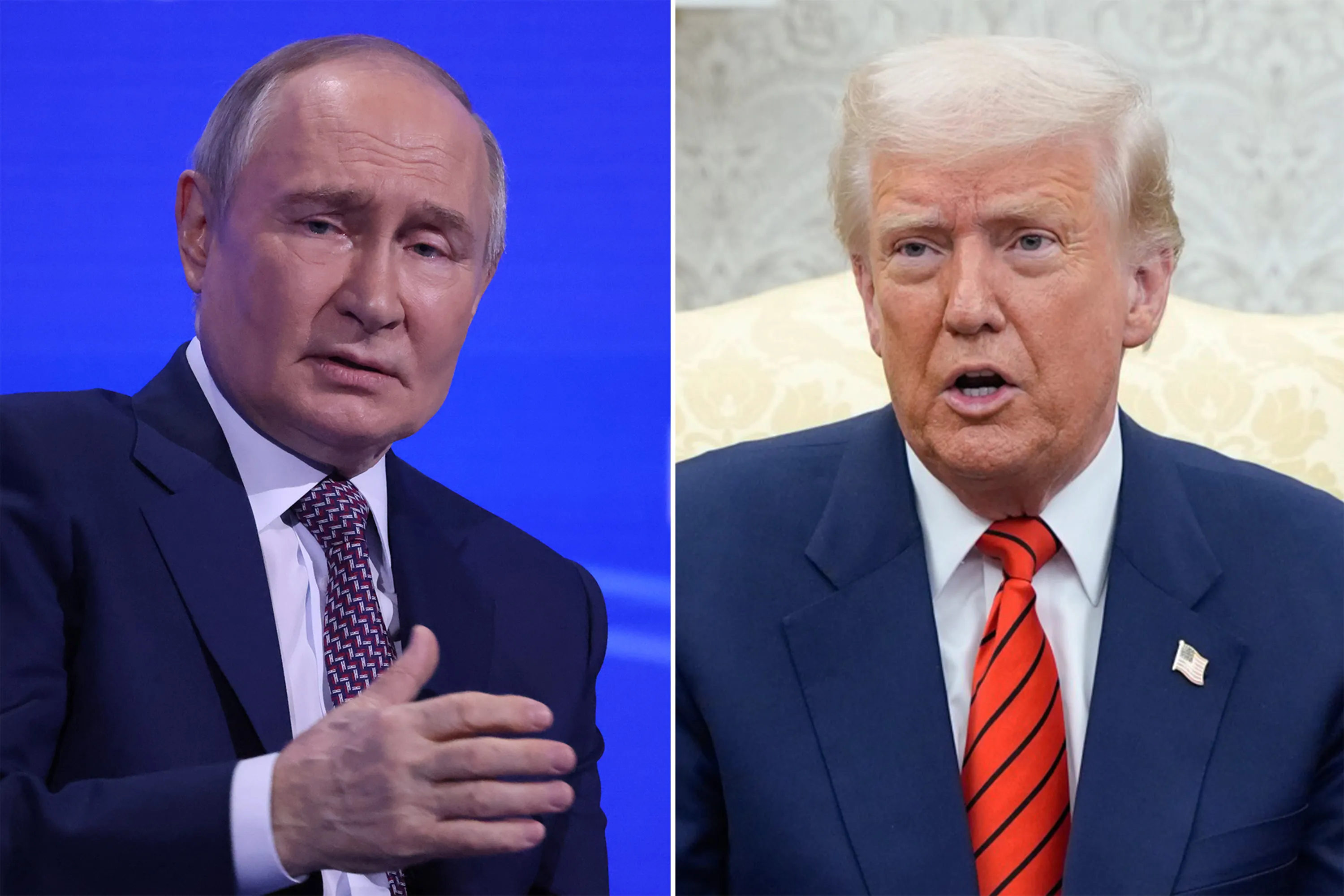

Trump Warns Putin Against Derailing Ukraine Talks
Former U.S. President Donald Trump has cautioned Russian leader Vladimir Putin not to stand in the way of a possible peace deal between Ukraine and the West. In a recent interview, Trump said that if Russia tries to block any agreement, there would be “very severe consequences.” He also mentioned that he believes he could help bring both sides to the table quickly if he returns to office. His comments come as the war in Ukraine continues with no clear end in sight. Trump’s tone was firmer than in the past, suggesting he’s now more willing to confront Russia directly. While he didn’t give exact details of what the consequences would be, his message was clear: don’t interfere with efforts to end the conflict. Trump also criticized how the war has been handled so far, saying it could have been avoided altogether. He believes that under his leadership, the situation might never have reached this point, and that now is the time to focus on solutions, not blame. As he campaigns for the 2024 election, Trump is making peace efforts and foreign policy a key part of his message. His warning to Putin seems aimed at showing voters he’s serious about ending the war, but also standing firm when needed.
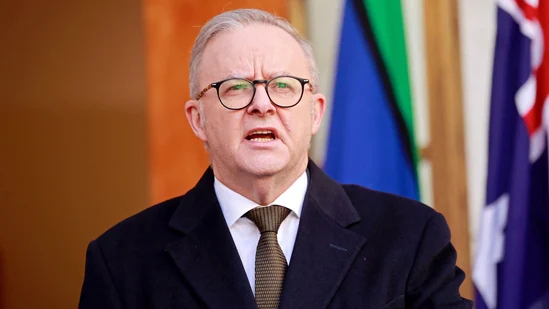

After UK and Canada, Australia Plans Recognition of Palestinian State in September
Australia has announced it will officially recognize Palestine as a state during the United Nations General Assembly in September. The decision comes amid ongoing humanitarian concerns in Gaza and follows similar moves by countries like the UK and Canada. Prime Minister Anthony Albanese said the recognition is part of a broader effort to support a two-state solution and move toward lasting peace in the region. The recognition is conditional on commitments from the Palestinian Authority, including nonviolence, free elections, and the exclusion of Hamas from any leadership role. Albanese emphasized that this is not a symbolic act but a practical step toward encouraging political resolution and addressing the deepening crisis on the ground. The decision has drawn mixed responses. Some critics argue that recognizing Palestinian statehood without a comprehensive peace deal could increase regional tensions and undermine Israel’s security. Supporters, however, see it as a necessary moral and diplomatic step, urging the government to follow through with meaningful humanitarian and diplomatic efforts. This move marks a shift in Australia’s approach to Middle East policy, reflecting a growing international consensus on the need for renewed momentum toward a peaceful solution. The government has framed the decision as a recognition of the human cost of inaction and an attempt to support dignity and justice for both Palestinians and Israelis.


Japan hits record heat, raising concerns about rice harvests
Japan is experiencing its highest temperatures on record, with some areas seeing heat well above the seasonal average. This extreme weather is placing added stress on daily life, particularly for older individuals and those working outdoors. Authorities have issued heat alerts, and hospitals are reporting more cases of heat-related illnesses. One of the biggest concerns is the impact on rice, a staple food and a key part of Japan’s agriculture. Rice plants are sensitive to both heat and water levels. When it’s too hot during the growing season, the grains can become smaller or discolored, which lowers their quality and reduces the harvest. Farmers are already seeing signs of stress in their fields. Some have begun adjusting water levels or changing when they plant, but these efforts may not be enough if the high temperatures continue. Many are worried this could affect not just this year’s crop but the future of rice farming as well. This heatwave reminds us just how connected farming is to the weather. As climate patterns change, farmers are having to adapt quickly—often without much guidance or support. Right now, many are collectively hoping for a cool-down and better weather in the weeks ahead.


U.S. Increases Scrutiny of Green Card Applications from Married Couples
To combat immigration fraud, the U.S. government has tightened the requirements for married couples applying for green cards. Couples will now have to go through more thorough interviews and provide more evidence that their relationship is sincere under the new regulations. This includes exchanging financial documents, joint leases, and even private messages or images that demonstrate the couple's shared lifestyle. According to immigration attorneys, the modifications will lengthen and complicate the process, particularly for recently married couples or those who live apart due to work or family obligations. Some are concerned that couples in real relationships who might not have sufficient documentation may be unfairly denied legal status or have their status unfairly delayed by the stricter guidelines. The new regulations are a component of larger initiatives. The United States Citizenship and Immigration Services (USCIS) has announced new guidelines affecting marriage-based green card applications. Starting in November, applications from spouses of U.S. citizens in certain countries—including Venezuela, Myanmar, and China—will face additional scrutiny and longer processing times. These changes also introduce updated paperwork requirements, including proof of legal status in the U.S. The policy is part of a broader shift in immigration enforcement under the Biden administration, particularly for applicants from countries facing political or social instability. In the issued statement, USCIS has made it clear that these amendments to immigration policies are made with consideration to both national security and the international relations of the United States. Critics, including members of the Government Accountability Office, have raised alarms that these changes are an ecosystem of control fashioned by USCIS to deter people from coming to the US. These rules are yet to be made in practice which makes it appears to further restrict immigration, but the administration seems to be doing so intending to build a system that is streamlined, efficient and makes immigration is easier for legality in the US border control, however seems to be charging a hefty fee on a pproving visas in a delayed fashion. Spouse visas as the hurdles through which the admin hopes to stem the flow of immigration. This appears to be a payer listing these issues for practical emission waivers through which the US passage of streamlined borders, if it ever borders, policies, is fair and enforceable.
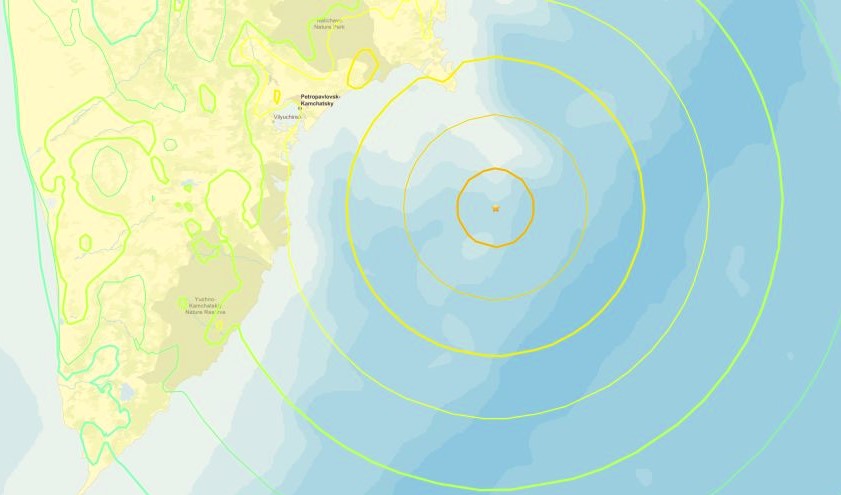

Strongest Pacific Quake Since 2011 Sparks Tsunami in Russia and Japan
A powerful undersea earthquake struck the Pacific Ocean, triggering tsunami waves that reached the coasts of both Russia and Japan. Measuring over magnitude 8.0, this is the most intense quake recorded in the region since the devastating 2011 Tōhoku earthquake. Authorities in both countries issued immediate tsunami warnings, urging coastal residents to evacuate to higher ground. The regions of Russia closest to the earthquake's epicenter on the Kamchatka Peninsula reported damages and evacuation efforts, but there were no serious injuries. In Japan, waves as high as 1.5 meters were reported along parts of the northeastern coast. While far less destructive than the 2011 disaster, the tremors reignited painful memories among survivors and prompted a swift emergency response. Russia’s Far East, including parts of the Kuril Islands, also experienced moderate flooding. Thankfully, early warning systems and prompt evacuations helped minimize casualties. Transportation services were disrupted, with flights grounded and trains halted as a safety precaution. Local governments have deployed disaster response teams, and damage assessments are currently underway. While no major structural damage has been reported so far, residents remain on alert for aftershocks. This event is a stark reminder of the Pacific Ring of Fire’s volatility. As scientists continue to monitor seismic activity, communities are once again reminded of the importance of preparedness and resilience in the face of natural disasters.
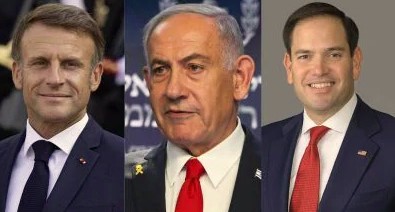

US, Israel Criticize France’s Move to Recognize Palestinian State
The United States and Israel have voiced strong opposition to France’s recent decision to officially recognize a Palestinian state. French leaders framed the move as a step toward peace and a renewed call for a two-state solution, but critics say it risks undermining future negotiations. U.S. officials said the announcement could complicate efforts to bring both sides back to the table. Washington continues to support the idea of two states, but emphasizes that any agreement should come directly from talks between Israel and the Palestinians, not through outside declarations. Israel’s response was even more direct. Officials accused France of making a political statement that could encourage violence and harden positions. The Israeli government insists that peace must be built through mutual agreement, not unilateral recognition. Palestinian leaders welcomed the decision, calling it long overdue. They say France’s stance helps shift global attention back to the issue and adds pressure for a political resolution. Several other European and global nations have also recognized Palestine in recent months. As diplomatic tensions rise, the move reveals deep divisions in global responses to the conflict. Some countries see recognition as a step to peace, while others fear it could increase mistrust and hinder dialogue.
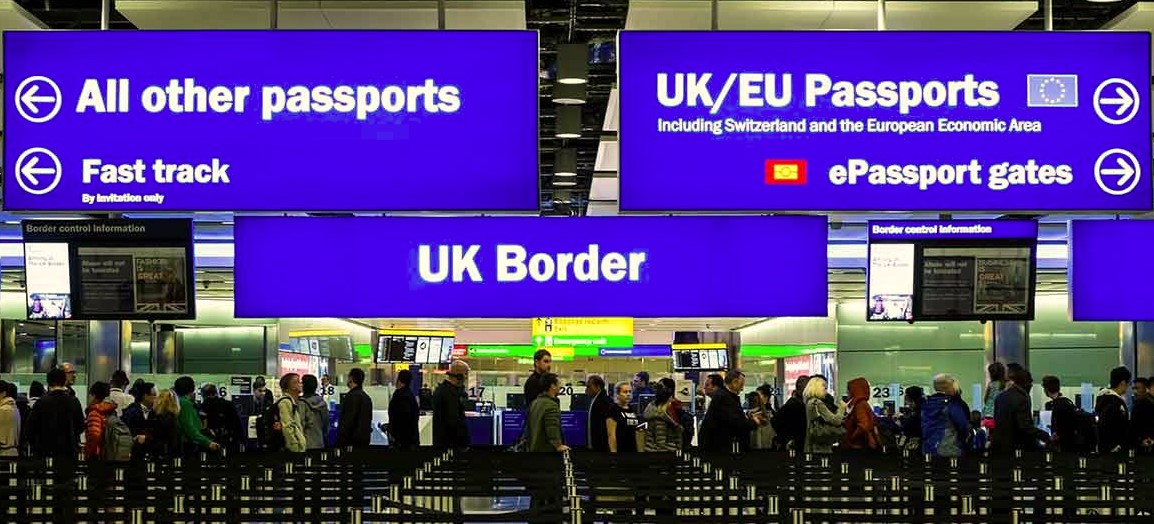

Europe Edges Closer to Trump-Style Immigration Policies
Across Europe, governments are increasingly taking a stricter approach to immigration that mirrors many of the ideas once considered extreme under former U.S. President Donald Trump. From border control to asylum processing, policies once seen as fringe are now entering mainstream politics. European countries are tightening deportation rules, limiting access to asylum, and exploring offshore centers to handle migrants — moves that strongly echo Trump-era strategies. Italy, for example, is setting up centers outside its own borders to process asylum claims, aiming to keep migrants from stepping foot on European soil. Hungary is building fences and making it clear it doesn’t welcome mass migration. Even traditionally moderate countries like Germany and France are now pushing for quicker deportations and tougher screening procedures. These shifts reflect growing public pressure to address irregular migration and the rise of nationalist movements across the continent. What’s notable is that this change is no longer limited to right-wing parties. Centrist leaders, once cautious about adopting hardline policies, are now borrowing tactics to avoid losing votes to more extreme rivals. This political shift shows that the influence of Trump’s approach has quietly taken hold in Europe—not necessarily through rhetoric, but through real policy changes. While these moves may address some border-control concerns, they also risk straining European unity and raising legal and moral questions about the treatment of migrants and refugees. As countries move further in this direction, Europe faces a defining challenge: balancing public demand for control with its commitment to human rights and international law.
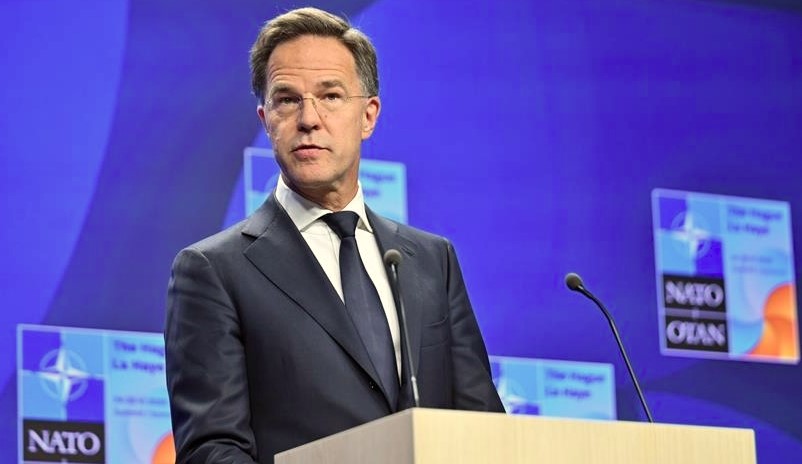

Russia and Its Allies Face Sanctions Warning from NATO
NATO has warned Russia and its close allies that new sanctions may be introduced if military tensions in Eastern Europe continue to escalate. The alliance cited what it views as ongoing aggression by Moscow and growing cooperation with governments that oppose NATO’s security interests. Though the exact sanctions haven’t been disclosed, they are expected to target trade, defense, and financial ties. NATO officials say the warning is part of a broader effort to deter actions that undermine stability in the region. “We’re watching developments carefully. A united response will follow if the situation worsens,” a NATO spokesperson said. Despite the tough stance, NATO emphasized that diplomacy is still an option. Member states are urging Russia to return to dialogue and reduce tensions. This move reflects the increasingly strained relationship between Russia and the West, fueled by years of disputes over cyber attacks, border conflicts, and energy control. The outcome of NATO’s next round of meetings could determine whether these threats turn into real-world penaltie
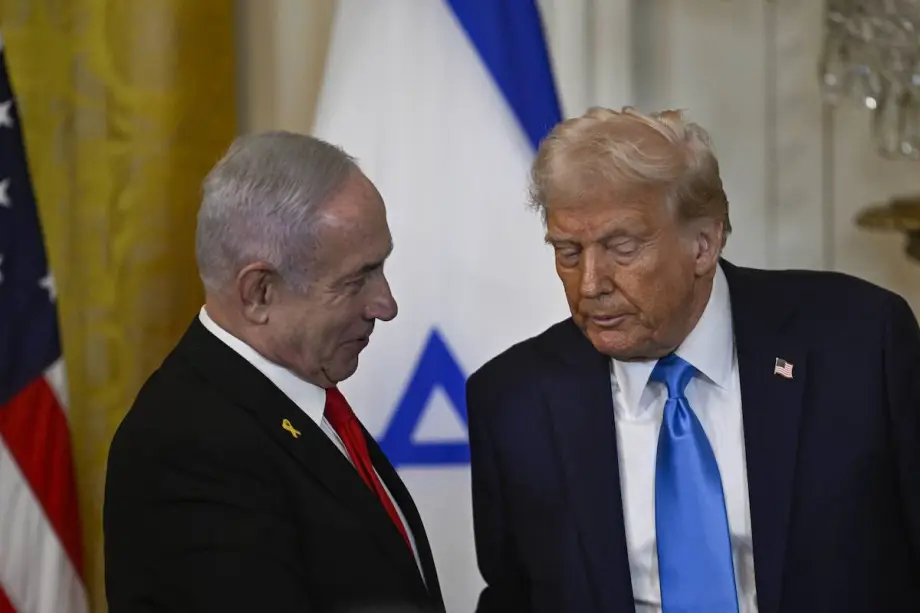

Trump Voices Optimism Over Gaza Ceasefire Talks in Meeting With Netanyahu
Former U.S. President Donald Trump met with Israeli Prime Minister Benjamin Netanyahu in the U.S. to discuss the ongoing war between Israel and Hamas. The leaders focused on the urgent need to reduce violence in Gaza and explore the possibility of a temporary ceasefire. Trump described the talks as “encouraging” and said he believes there’s a real window for progress. He emphasized that ending the fighting, even temporarily, could bring relief to civilians on both sides and help create space for further dialogue. “A ceasefire helps everyone — it’s a step toward peace, even if small,” he said during the meeting. Netanyahu expressed appreciation for Trump’s continued support for Israel. While reaffirming that Israel must protect its citizens and respond to ongoing threats, he acknowledged the importance of pursuing diplomatic options. “We’re open to efforts that can ease the suffering of innocent people and restore some calm,” he said. Although a ceasefire agreement has not yet been finalized, both Trump and Netanyahu said conversations are ongoing. They remain hopeful that a break in the violence could be reached soon, offering a brief but important pause for families affected by the months-long conflict.
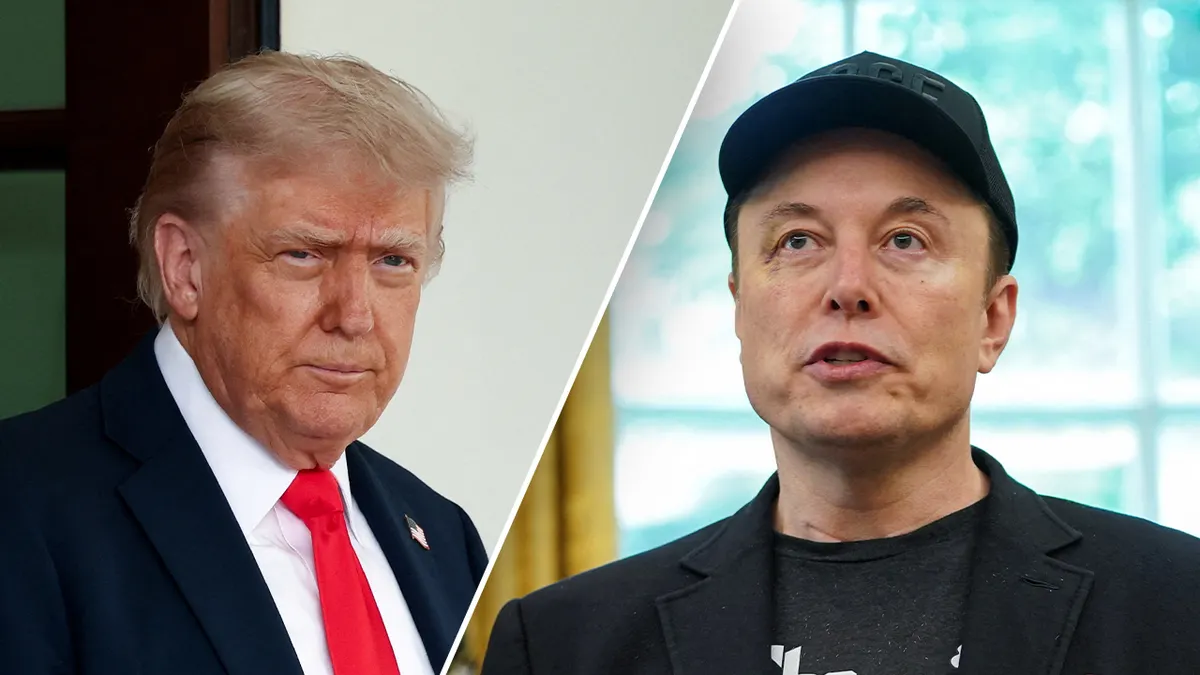

Trump Pledges to End EV Aid for Tesla; Musk dismisses threat off
Donald Trump threatened to end subsidies for Elon Musk’s companies, including Tesla and SpaceX. Musk, a former adviser to Trump, responded by calling for an end to all subsidies. Trump also suggested Musk might leave the U.S. without government support. Former U.S. President Donald Trump responded by attacking Musk’s stance, claiming his businesses depend on federal subsidies. He suggested that without government support, Musk might leave the U.S. and shut down operations. Trump also questioned the purpose of the government office Musk once led and hinted it should investigate Musk’s companies. Musk responded shortly after, saying the Republican leader should follow through on his threat and cut the subsidies given to his companies. "I am literally saying CUT IT ALL. Now," the tech mogul wrote in a post on X. Elon Musk, who once served as an adviser during Trump’s presidency, responded by saying he supports ending all subsidies to his businesses. He emphasized that he doesn't rely on government aid and believes the companies should stand on their own. In a social media post, Trump said he had always opposed mandates for electric vehicles and accused Musk of benefiting more from government aid than anyone else. He argued that stopping federal support for rockets, satellites, and electric cars could save billions. As the Senate moved ahead with voting on Trump's $4.5 trillion bill—which would extend tax cuts and tighten border control—Musk criticized Republicans for supporting what he called "debt slavery." He warned that the rising national debt puts the country at risk and questioned the logic of raising the debt ceiling repeatedly.
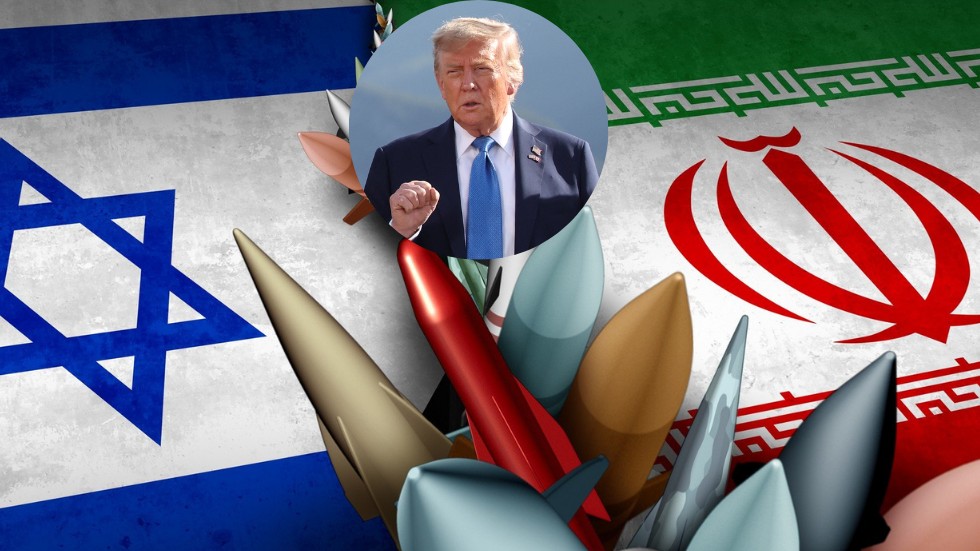

Iran Says It Will Hold Fire—If Israel Does the Same
Trump Says a Ceasefire Is in Place, But the Fighting Hasn’t Stopped Iran says it will stop launching attacks against Israel—but only if Israel stops its military strikes first. This statement came shortly after former U.S. President Donald Trump announced that both countries had agreed to a ceasefire. However, Iran's government quickly responded to Trump's claim, saying that no official agreement had been made. According to Iranian officials, the country is not part of any formal ceasefire deal. Instead, they said Iran is willing to pause its actions if Israel ends its attacks. Despite the talk of a ceasefire, fighting has continued. Early on Monday, Iran fired more missiles toward Israel, and some also targeted a U.S. military base in Qatar. In response, Israel launched new airstrikes in Tehran, including areas with military facilities. Iran had set a deadline of 4 a.m. local time for Israel to stop its attacks. But Israeli strikes continued beyond that point, leading to more tension and no clear end to the violence. Trump’s announcement may reflect behind-the-scenes discussions led by countries trying to ease the conflict, but so far, no formal peace deal has been confirmed by either side. As of now, both Iran and Israel remain active in military operations, and any hope for calm depends on whether one side chooses to fully stop its attacks first.


















